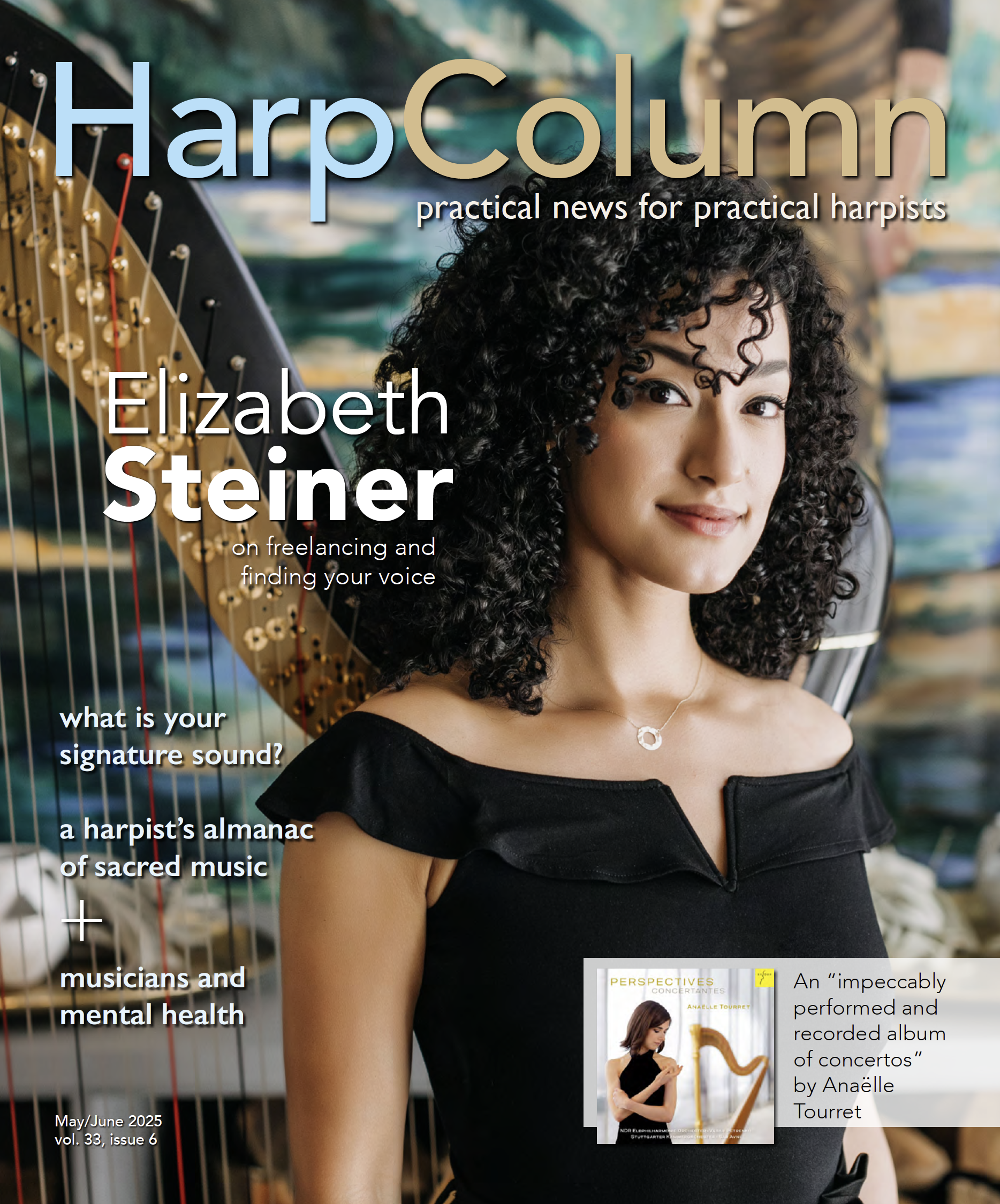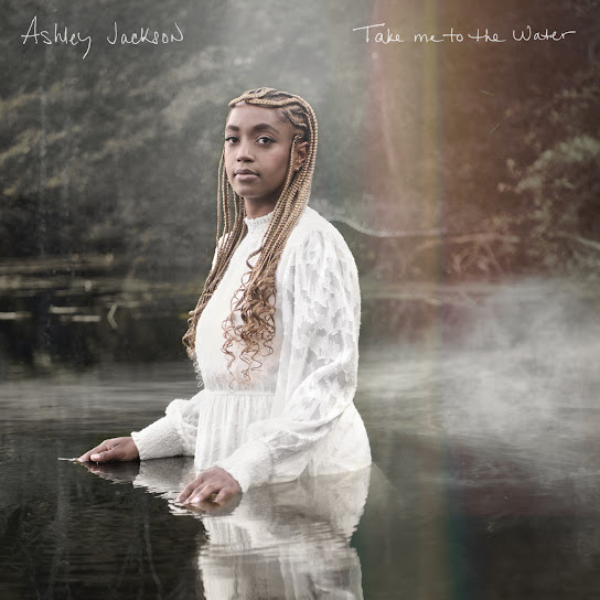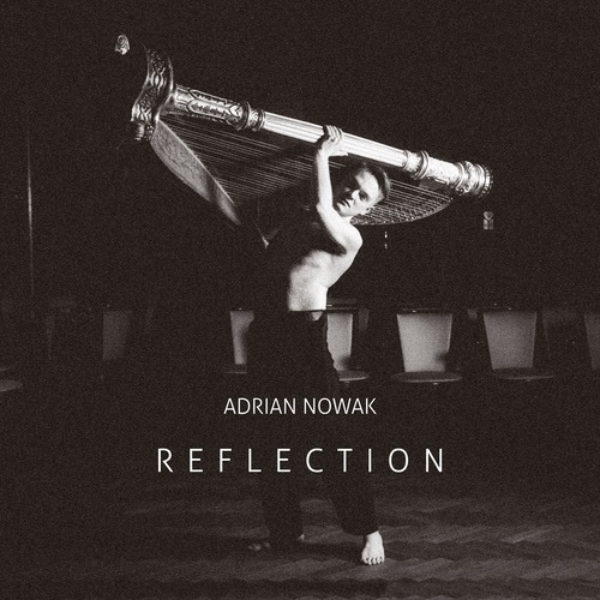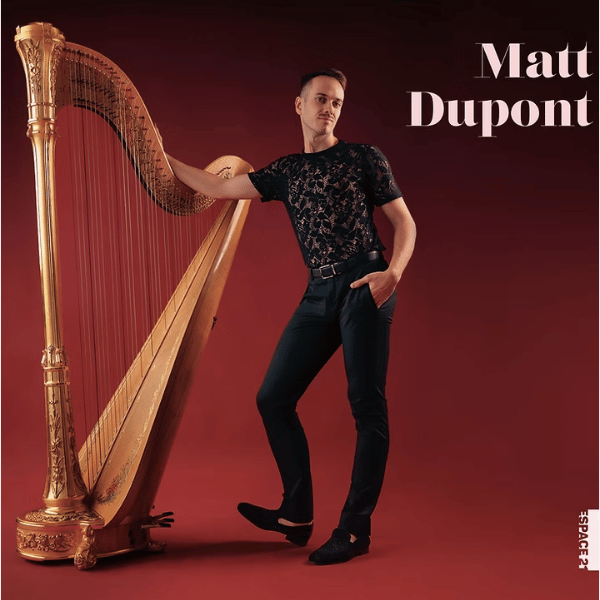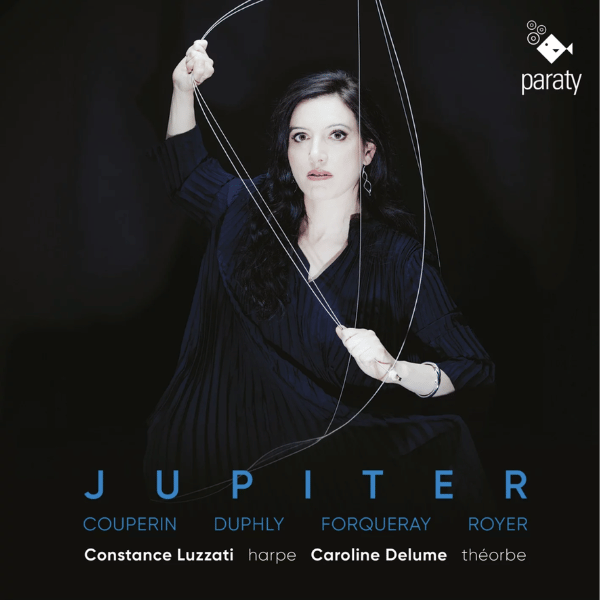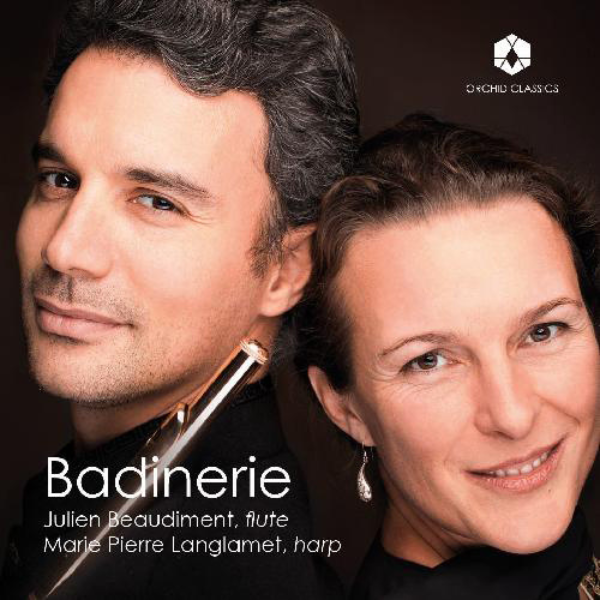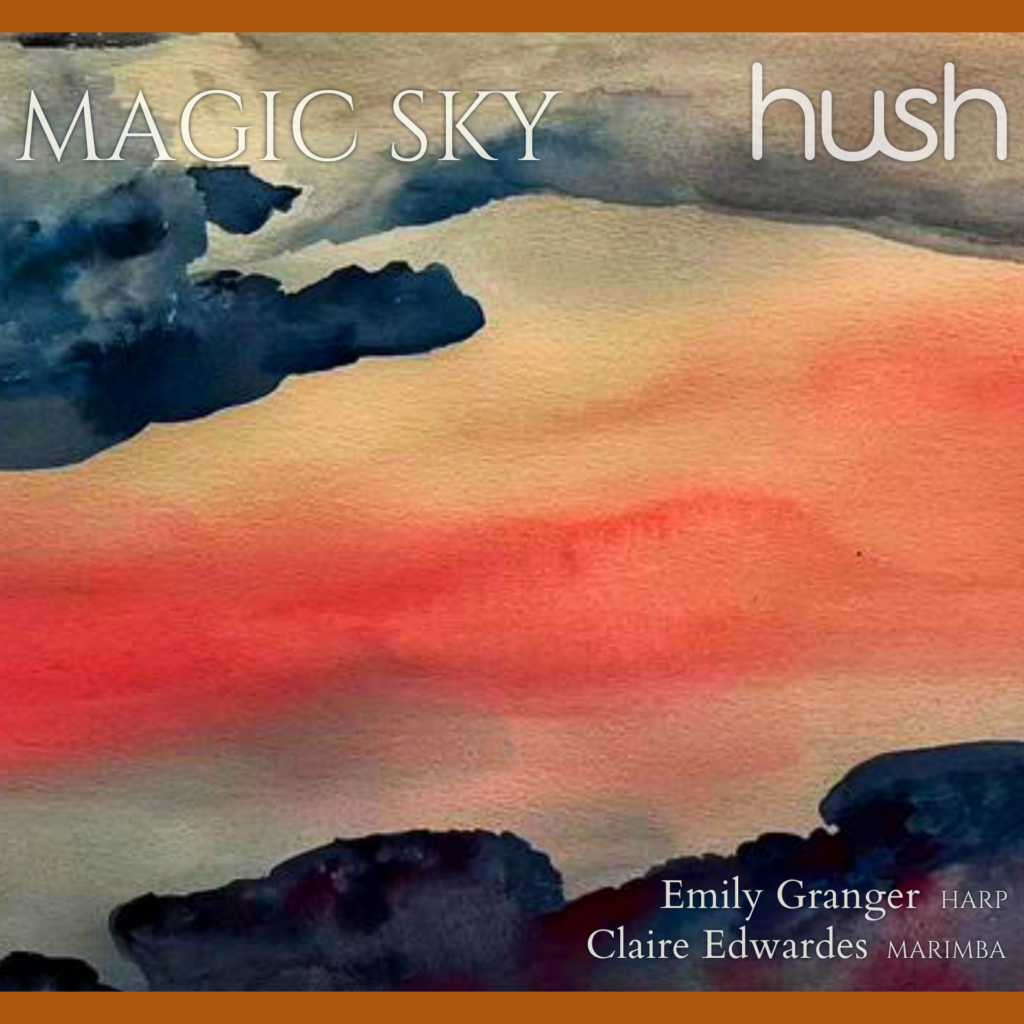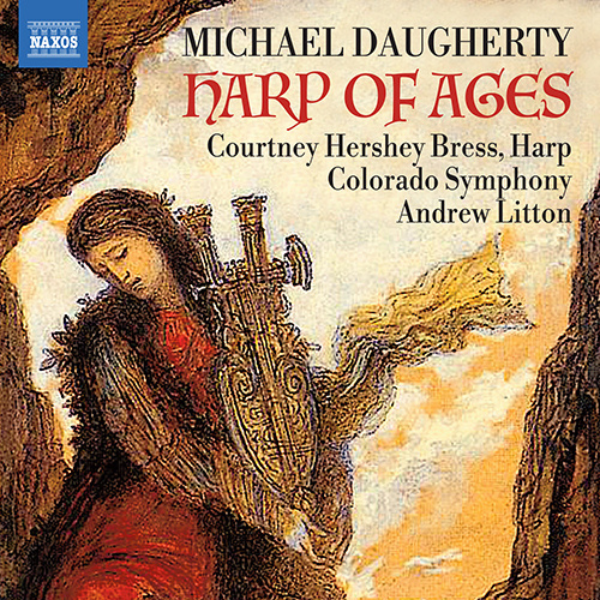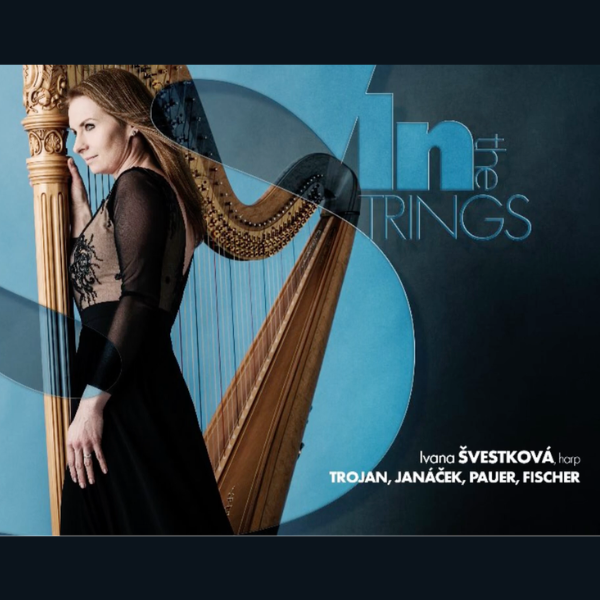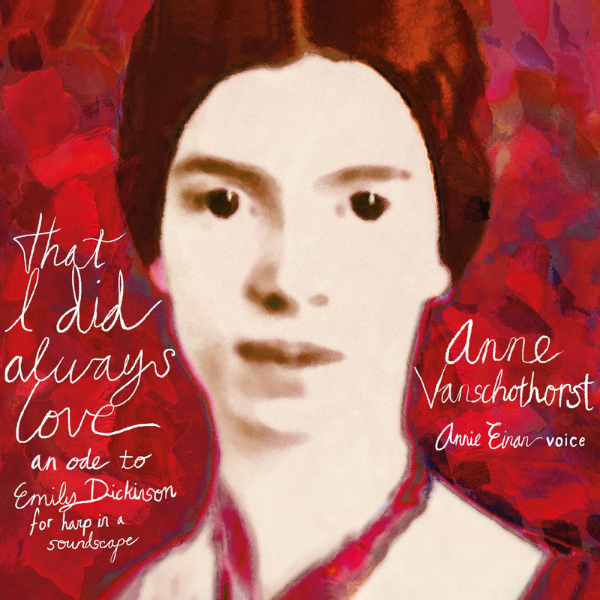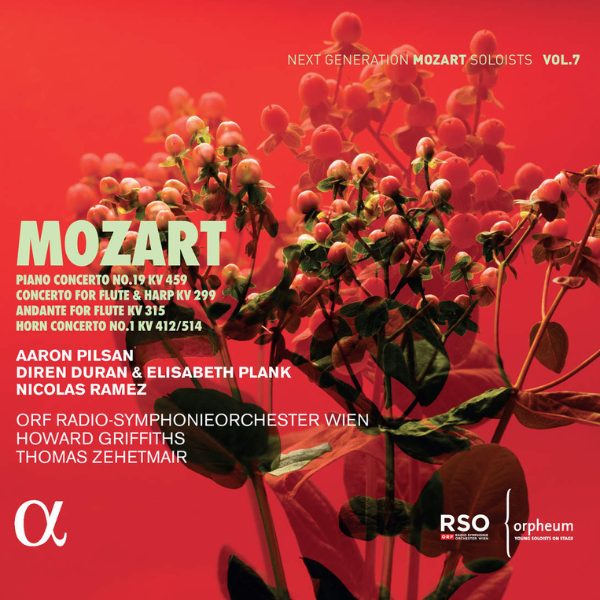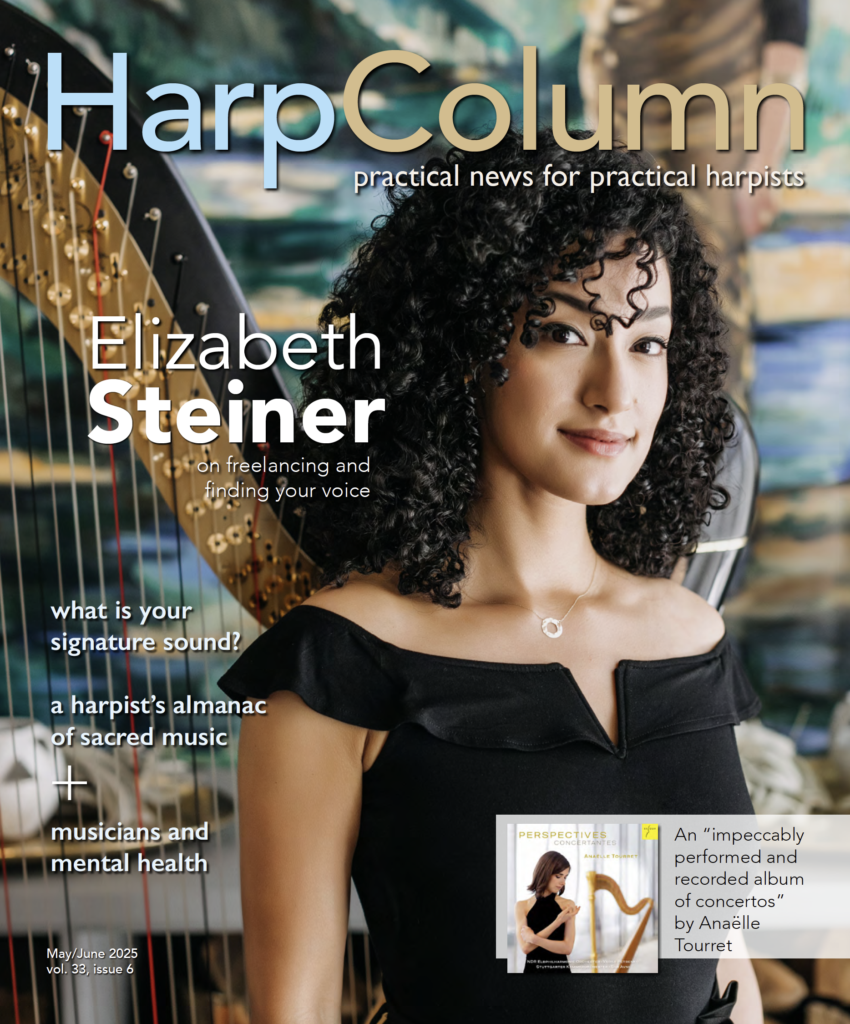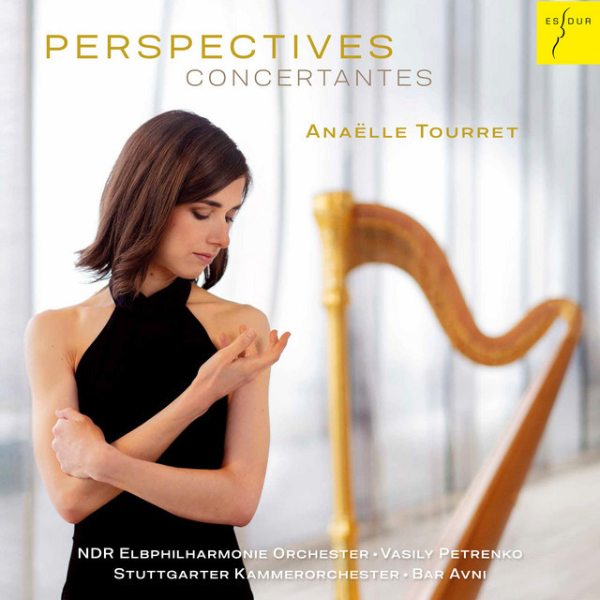
10/10
Anaëlle Tourret, harp.
C2 Hamburg, 2025.
Following the success of her debut solo album, Perspectives, French harpist Anaëlle Tourret welcomes us into the world of harp with orchestra in an impeccably performed and recorded album of concertos. Perspectives Concertantesshowcases Tourret’svirtuosic grace and a deep understanding behind the composers’ intentions with three masterpieces in a dialogue of contrasts—Reinhold Glière’s romantic and Slavic-inflected concerto, Claude Debussy’s silky modernist Dances sacrée and profane and finally Ernst von Dohnányi’s visionary harp concerto. It’s a monumental endeavor for any artist, and one that’s extremely successful and satisfying in the hands of this young star of the harp world.
Since 2017, Anaëlle Tourret has held the principal harp position of the NDR Elbphilharmonie Orchestra in Hamburg, Germany. The recording begins with her home orchestra performing the Glière Concerto for Harp led by Vasily Petrenko, opening with a simple one-note invitation before the harp enters with a series of luscious cascading arpeggios. At age 63 and already a famous composer, Glière was well-positioned to take a few risks with the concerto. Although the harp was prominent in orchestral scores, no other Russian composer had attempted a vehicle for the harp as soloist. It would take a harpist playing one of his ballets to convince him to give a concerto a try, finally completing the work a dozen years later in 1938.
Although far less adventurous harmonically or technically than other works of its day, the concerto is filled with romantic melodies that Tourret offers with utmost expression and vivid coloration. She emphasizes the glorious sweep and grandiose quality that hearkens back to an earlier time. Her command of the solo spotlight is incomparable, but it’s clear she’s playing with familiar colleagues, as if in an affectionate duet.
What makes this recording particularly stunning is Tourret’s ability to change character utterly as she moves through each work. Claude Debussy wrote his set of dances three decades before Glière, but it feels a work of a much later era and Tourret—along with the magnificent Stuttgart Chamber Orchestra conducted by Bar Avni—hones in on the pastel sonorities and veiled mystery of the work. There’s an out-of-time element in the best sense, where melodies seem to bubble forth. This is one of the most magical performances I’ve heard.
The harpist for whom von Dohnányi wrote his concerto in 1952 found it far too conservative. But like discovering buried treasure, Tourret has eagerly resurrected this gem giving it a freshness as well as a deep understanding of how the harp interacts with the chamber orchestra. Less as solo leader and more working as a partner, she emphasizes cinematic, dreamy, and exciting qualities of a piece I hope finds its way onto more concert programs.




